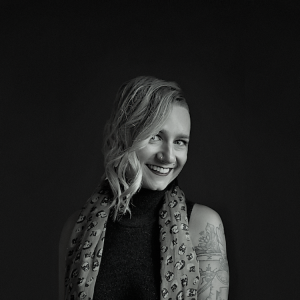The Fix
The Fix is a podcast that shares stories of women and men who are taking action and innovating to advance equality in the workplace and beyond.
The Fix is a podcast that shares stories of women and men who are taking action and innovating to advance equality in the workplace and beyond.
Episodes

Friday Nov 13, 2020
Michelle King: How To Get More Women In Power And Keep Them There
Friday Nov 13, 2020
Friday Nov 13, 2020
Last weekend, Kamala Harris made history when she became America's first female, first Black and first South Asian vice president-elect, representing a new face of political power. The California senator's history-making win also represents the millions of women in the demographics -- often overlooked, historically underrepresented, and systematically ignored -- who are now the recipients of that new power for the first time in the country's 200-plus-year history.On this special episode, my former UN Women colleague, Selina Suresh, will be interviewing me on how we can get more women, like Kamala into positions of power, and more importantly, keep them there.

Wednesday Oct 28, 2020
Casey Welch: What The Generation Z Wants
Wednesday Oct 28, 2020
Wednesday Oct 28, 2020
Americans – Generation Z (“Gen Z”). Born after 1996, most members of this generation are not yet old enough to vote, but as the oldest among them turn 23 this year, roughly 24 million will have the opportunity to cast a ballot in November. And their political clout will continue to grow steadily in the coming years, as more and more of them reach voting age. Members of Gen Z are more racially and ethnically diverse than any previous generation, and they are on track to be the most well-educated generation yet. They are also digital natives who have little or no memory of the world as it existed before smartphones.Unlike the Millennials – who came of age during the Great Recession – this new generation was in line to inherit a strong economy with record-low unemployment. That has all changed now with COVID-19. There are already signs that the oldest Gen Zers have been particularly hit hard in the early weeks and months. In a March 2020 Pew Research Center survey, half of the oldest Gen Zers (ages 18 to 23) reported that they or someone in their household had lost a job or taken a cut in pay because of the outbreak.Aside from the unique set of circumstances in which Gen Z is approaching adulthood, what do we know about this new generation? To understand the generational differences and why they matter, Casey Welch, CEO of Tallo, a platform that helps Gen Z find scholarship, university, and job opportunities will be joining us on this episode to better understand the challenges and opportunities facing the Gen Z.

Wednesday Oct 21, 2020
Justyn Hintze: Surviving a Hostile Work Environment
Wednesday Oct 21, 2020
Wednesday Oct 21, 2020
A survey released this month by Women Who Tech, which includes responses from 1,003 tech employees, founders, and investors, globally found that nearly 50% of women founders and women working in tech have experienced harassment — a statistic that has barely budged since 2017.When asked what kind of sexual harassment, 65% of women founders said they were propositioned for sex. In addition: • 59% of women experienced unwanted physical contact• 56% of women had sexual slurs directed at them• 32% of women were groped• 24% of women were sent graphic photosOn this episode, Justyn Hintze, Director of Women Who Tech, will share the report findings and help explain why there has been such little progress when it comes to creating a safe, welcoming work environment for women in technology.

Wednesday Oct 14, 2020
Benjamin Mertz: How To Heal Racism
Wednesday Oct 14, 2020
Wednesday Oct 14, 2020
If you are committed to tackling inequality, racism, sexism, classism, ableism, at some point in undertaking this work, you will realize that the work begins with each of us. We have to address our own racist and sexist beliefs on a daily basis, with the curiosity and compassion needed to transform these beliefs. Today’s episode is a special one that features Benjamin Mertz, a composer, performer, and song leader who specializes in music of the Black Spiritual tradition. Benjamin is a human rights and racial justice activist. On this episode, you will get a glimpse into how he uses the power of music, storytelling, and human emotions to heal racial divides.

Wednesday Oct 07, 2020
Jessica Teresi: A Survivor's Guide
Wednesday Oct 07, 2020
Wednesday Oct 07, 2020
Since the outbreak of COVID-19, emerging data and reports from those on the front lines, have shown that all types of violence against women and girls, particularly domestic violence, has intensified. Isolation makes the situation worse, as women and girls are more vulnerable, because of a lack of established social support systems. The temporary shutdown of non-essential businesses has led to unemployed and economic strain and quarantine conditions are associated with alcohol abuse and depression. All of this coupled with the stay-at-home orders have led to the global increase in domestic violence. This is the "Shadow Pandemic" growing amidst the COVID-19 crisis. As COVID-19 cases continue to strain health services, essential services, such as domestic violence shelters and helplines, have reached capacity. More needs to be done to prioritize addressing violence against women in COVID-19 response and recovery efforts.On today’s podcast, Jessica Teresi, survivor of childhood sexual abuse and intimate partner violence, an advocate for change and an expert in sexual violence trauma and prevention will unpack the key factors that lead someone to become a domestic abuser, and what we can do to tackle this important issue.

Friday Oct 02, 2020
Pamela Fuller: Unconscious Bias Training Does Not Work, Here’s How To Fix It
Friday Oct 02, 2020
Friday Oct 02, 2020
There is growing research demonstrating how ineffective unconscious bias training is. A longitudinal study found that traditional diversity trainings are the least effective efforts in increasing numbers of underrepresented minorities, while experimental research has shown that presenting evidence that people commonly rely on stereotypes — information often found in diversity trainings — isn’t helpful and can even condone the use of stereotypes. One of the major challenges is simply telling people they are biased. Furthermore, telling people that biases are unconscious encourages them to believe that there is nothing they can do about it — as it's unconscious after all! So how can we fix this? The aim is to enable employees to become conscious decision-makers, as they are aware of their biases and know how to overcome them in decision-making processes. To explore how we can make this shift, Pamela Fuller, a FranklinCovey’s thought-leader on unconscious bias, and co-author of the upcoming book "The Leader’s Guide to Unconscious Bias: How to Reframe Bias, Cultivate Connection, and Create High-Performing Teams", will share how we can overcome our unconscious biases and make more effective and equitable decisions at work.

Friday Sep 25, 2020
Rita Clifton: Imposter Syndrome
Friday Sep 25, 2020
Friday Sep 25, 2020
Imposter syndrome was first identified in 1978 by psychologists Pauline Rose Clance and Suzanne Imes. In their paper, they theorized that women were uniquely affected by imposter syndrome. Since then, research has shown that both men and women experience imposter feelings, and Clance published a later paper acknowledging that impostor syndrome is not limited to women. On this episode, Rita Clifton, author of "Love Your Imposter: Be Your Best Self, Flaws and All" will tackle the myth that you need to 'fake it until you make it', arguing that being yourself is your greatest weapon and why workplaces need authenticity more than employees do.

Thursday Sep 10, 2020
Edward Hess: How To Make Your Workplace Human
Thursday Sep 10, 2020
Thursday Sep 10, 2020
Today, employees must manage both a virtual workplace and a work environment at home. This takes different types of skills, like online collaboration, delegation, and time management. For leaders, the primary concern is how to ensure engagement, wellbeing, and inclusion in a virtual work environment. Employee engagement is critical to enabling creativity, innovation, problem-solving, productivity, and profits. And what enables engagement? Leadership. On this episode, Edward Hess, author of the new book "Hyper-Learning: How to Adapt to the Speed of Change" and Professor of Business Administration, Batten Fellow and a senior executive with more than 20 years of experience working in corporate America, will share why the old, control and command, fear- and ego-based ways of working and leading won’t survive and why the workplaces of the future will be more human.


